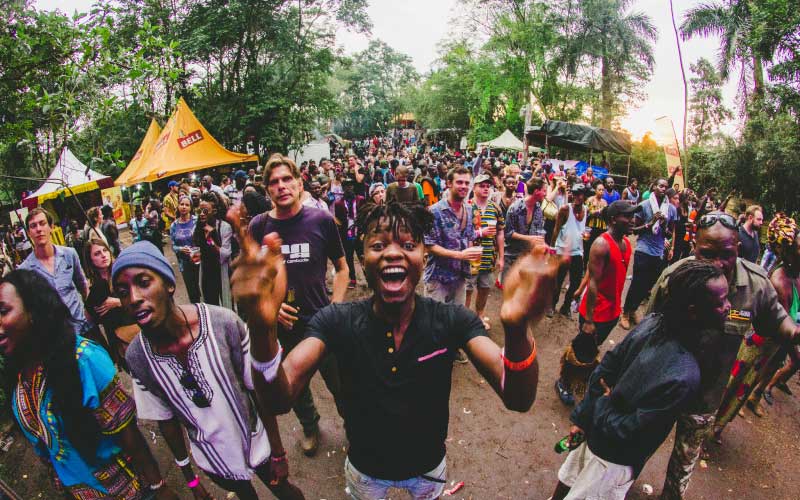The popular Nyege Nyege music and arts festival in Uganda has not only entertained thousands of fans from across the world but has also brought in a huge boost to the country’s economy. A new report released by the Ugandan government has revealed that the 2025 edition of the event contributed UGX 6.62 billion, which is about $1.8 million, to the economy.
This money came from spending by visitors on food, drinks, hotels, transport, and the many temporary jobs created during the event. The report, which was backed by the Ministry of Tourism and local government authorities, highlighted the strong economic and social value of the festival, which has become one of East Africa’s most important cultural events.
The 2025 Nyege Nyege festival was held earlier this year and brought together more than 26,000 people. Out of this number, about 38% were international visitors who travelled from Europe, the Americas, Asia, and other African countries to attend the four-day festival. This influx of tourists helped to boost hotel occupancy, taxi businesses, local food vendors, and many others working in the tourism and creative sectors.
Speaking about the report, one of the organisers of the festival, Mr. Derek Debru, said they were happy to see that Nyege Nyege is now being recognised not only for its music but also for its major contribution to Uganda’s economy and creative industry.
“We are proud to have created a new model of how festivals can offer life-changing experiences to guests while also making a strong economic impact. From tourism to entertainment and job creation, Nyege Nyege is showing the world what African creativity can do,” Debru said.
Over the years, Nyege Nyege has grown into a major international event that showcases music, dance, fashion, food, and art from different parts of Africa and beyond. It attracts musicians, DJs, cultural groups, and creative entrepreneurs who use the platform to promote African talent and culture.
According to the government’s report, the festival created hundreds of temporary jobs for young people. These jobs included work as security staff, cleaners, drivers, event organisers, food vendors, and tour guides. Many hotels and guest houses in the host town and surrounding areas were fully booked during the event period, showing how strong the tourism value has become.
The report also pointed out some areas that need improvement for future editions. Among the key recommendations were better sanitation and toilet facilities, stronger infrastructure, more affordable pricing for food and drinks, and the inclusion of more local artists and vendors.
One of the key proposals is to encourage more Ugandan businesses to participate in the festival by providing locally made products and affordable services. This move, the report noted, would make the festival more inclusive and deepen its positive impact on grassroots businesses.
The government also plans to work more closely with organisers to improve road access, crowd control, and health services around the festival location. The aim is to make Nyege Nyege a top international tourism attraction that is safe, clean, and profitable for everyone involved.
Meanwhile, several participants and attendees praised the 2025 edition of the event, describing it as vibrant, diverse, and culturally rich. Many international guests said they were surprised by the energy, creativity, and friendliness they experienced at the event.
Ms. Lillian Adoch, a local fashion designer who showcased her products at the festival, said she made more sales in four days than in three months of regular business. “It was a big opportunity to meet buyers from other countries and connect with other creatives. I wish we had more events like this,” she said.
With such positive economic results, the Ugandan government has promised to continue supporting Nyege Nyege and other similar cultural events that promote tourism and the creative industry.
